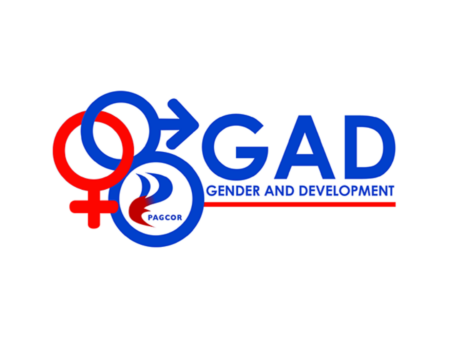On 5 November 2024, President Ferdinand R. Marcos Jr. signed Executive Order No. 74, effectively placing a nationwide ban on all Philippine Offshore Gaming Operators (POGOs) and halting offshore and internet gaming activities across the Philippines. This decisive action reflects the administration’s dedication to safeguarding national security, public order, and economic stability.

President Ferdinand R. Marcos Jr. Mandates Nationwide Ban on Philippine Offshore Gaming Operators (POGOs)
The executive order was formalized through Executive Secretary Lucas Bersamin and stands as a direct response to comprehensive investigations carried out by both the Department of Finance (DOF) and the Anti-Money Laundering Council (AMLC). These findings illustrate that the negative impacts of POGO operations far outweigh any economic advantages they may offer.
Reasons Behind the Nationwide Ban
National Security and Public Order Concerns
The government’s justification for the ban is centered on significant concerns over national security and public order. Reports indicate that POGO operations have been linked to an uptick in criminal activities, including money laundering, fraud, and the exploitation of vulnerable groups within the country.
The DOF report underscores the correlation between POGOs, increased crime rates, and social disruption. This connection has fueled anxiety over the stability of communities and the well-being of Filipino citizens.
Financial Risks Outweigh Economic Benefits
The DOF and AMLC reports clarified that the financial risks associated with POGO operations heavily overshadow their economic contributions. The presence of POGOs has resulted in financial irregularities and created a fertile environment for money laundering and other fraudulent activities.
The AMLC has voiced serious concerns over how POGO-linked practices threaten the integrity of the national financial system. This erosion of trust compromises both domestic and international confidence in the Philippines’ financial landscape.
Reputational Harm and Foreign Investment
POGO operations have also had detrimental effects on the country’s international reputation. The negative association with crime and economic instability discourages foreign investment and hampers the efforts of national authorities to present the Philippines as a secure and appealing tourism and investment destination. This reputational damage undermines economic progress and creates barriers to sustainable development.
Comprehensive Action Plan and Compliance Deadline
Cessation and Wind-Up by 31 December 2024
The executive order mandates that all POGO entities and auxiliary services must terminate operations and wind up their activities by 31 December 2024. This definitive timeline provides clarity and ensures an orderly cessation of all offshore gaming operations within the country.
Government Agency Support for Enforcement
Several government agencies have been mobilized to support the strict enforcement of the POGO ban:
- Philippine Anti-Organized Crime Commission and the Philippine Drug Enforcement Agency have been tasked with intensifying their surveillance and operational measures to prevent illegal offshore gaming activities.
- The Department of Tourism (DOT) is to maintain vigilance over tourism facilities to prevent their misuse for unauthorized gaming purposes.
- The Department of Human Settlements and Urban Development (DHSUD) will coordinate with homeowner associations to ensure that residential and commercial areas are not exploited for POGO-related activities.
This coordinated approach aims to eliminate the root of offshore gaming activities and ensure comprehensive compliance across all sectors.
Industry and Social Implications
Economic Adjustments
The withdrawal of POGO operations will likely have immediate effects on specific sectors, including real estate and employment. However, the government’s position remains firm: protecting the broader economy and public welfare takes precedence over the limited economic benefits provided by POGOs. Authorities plan to facilitate a smooth transition and mitigate any economic challenges that arise from this significant shift.
Public and Investor Confidence
The executive order is expected to enhance public confidence in the government’s commitment to uphold safety and security. It also sends a strong message to international investors that the Philippines prioritizes financial integrity and the rule of law. This renewed focus on compliance and transparency may position the nation for long-term economic stability and growth.
Social Welfare and Safety
By dismantling POGO operations, the government aims to protect vulnerable populations who are often at risk of exploitation in the gaming industry. This move aligns with broader social welfare policies that promote safer communities and reduce exposure to potentially harmful activities.
Strategic Implications for the Future
Strengthening Regulatory Frameworks
The decision to ban POGOs reinforces the importance of a robust regulatory environment. Moving forward, the administration is expected to implement enhanced measures for monitoring similar activities that could pose risks to national interests. The government’s proactive stance serves as a blueprint for future policy development in areas concerning financial oversight and public safety.
A Shift Towards Sustainable Investments
This executive order opens avenues for promoting more sustainable and legally compliant business ventures. The government’s emphasis on ensuring economic stability and national security can encourage the growth of sectors that align with these principles, such as technology and tourism, thereby broadening the country’s investment profile.
Conclusion: The Nationwide Ban
The nationwide ban on POGOs, mandated by President Ferdinand R. Marcos Jr., marks a significant shift in the Philippines’ approach to offshore gaming. Through Executive Order No. 74, the government has demonstrated its resolve to protect national interests, uphold public order, and maintain the integrity of its financial system. By eliminating the risks posed by POGO operations, the Philippines sets the stage for a more secure, prosperous future that prioritizes both economic sustainability and public safety.
FAQs About the Nationwide Ban on Philippine Offshore Gaming Operators (POGOs)
1. What is Executive Order No. 74?
Executive Order No. 74 is an official directive signed by President Ferdinand R. Marcos Jr. on 5 November 2024. It mandates a nationwide ban on all Philippine Offshore Gaming Operators (POGOs) and related activities, effective by 31 December 2024.
2. Why did the Philippines decide to ban POGO operations?
The ban was implemented due to concerns over national security, public order, and economic stability. Reports by the Department of Finance (DOF) and the Anti-Money Laundering Council (AMLC) highlighted increased crime, financial risks, and social unrest linked to POGO activities.
3. What negative impacts were associated with POGOs?
POGO operations were linked to a rise in crime, exploitation of vulnerable populations, and risks of money laundering and fraud. These activities posed significant threats to the integrity of the national financial system and undermined the country’s reputation, affecting foreign investment and tourism.
4. What is the deadline for POGOs to cease their operations?
All POGO entities and auxiliary services must terminate their operations and wind up their activities by 31 December 2024.
5. Which government agencies are involved in enforcing the POGO ban?
The ban’s enforcement involves several agencies:
- Philippine Anti-Organized Crime Commission and Philippine Drug Enforcement Agency for monitoring illegal gaming activities.
- Department of Tourism to ensure tourism facilities are not used for unauthorized gaming.
- Department of Human Settlements and Urban Development (DHSUD) to work with homeowner associations to restrict POGO operations in residential and commercial areas.
6. How will the ban affect the Philippine economy?
While certain sectors, like real estate and employment, may face short-term impacts, the government maintains that protecting public welfare and economic stability is more critical than the limited benefits from POGO operations.
7. What are the expected benefits of this ban for the public?
The ban is aimed at reducing crime, protecting vulnerable groups, and enhancing public safety. It also seeks to strengthen investor confidence by demonstrating the government’s commitment to maintaining a secure and law-abiding economic environment.
8. How will this ban impact foreign investments in the Philippines?
By eliminating the risks posed by POGO operations, the Philippines aims to improve its international reputation and attract more sustainable and transparent investments, promoting long-term economic growth.
9. What actions will be taken against illegal offshore gaming activities?
The Philippine Anti-Organized Crime Commission and the Philippine Drug Enforcement Agency will intensify efforts to monitor and prevent any illegal offshore gaming activities post-ban.
10. How does this ban align with future economic plans?
The executive order sets a precedent for stronger regulatory frameworks and prioritizes sustainable, legally compliant investments. The ban is part of broader efforts to promote a safe, secure, and attractive environment for businesses and tourism.

















